Part 2:
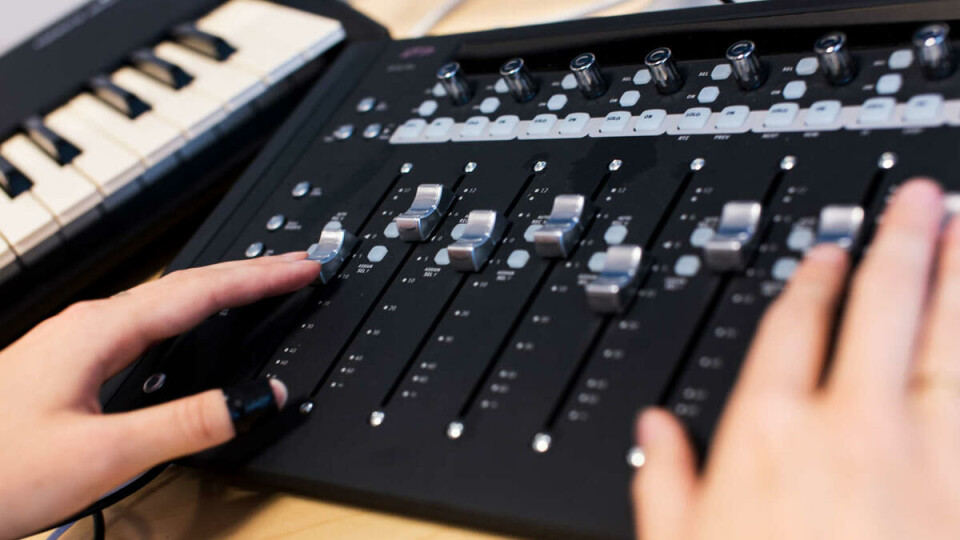
Gender and Equality in Music Industry in Norway
The 2nd part of the article about women`s engagement in Norwegian music industry.
Emelie «Emly» Kise is a young, non-binary artist, who makes dystopian and experimental/alternative music. At the moment she is drifting more into an electronic, industrial and dark wave direction musically with her new single «Changes» (released March 18th 2022), while her debut-EP «Shoot Me In The Face And Call It Art» was more rock-influenced. Asked about her connection to the music industry, she explains:
- My first real connection with the music industry started when I began my bachelor`s degree in Popular Music in Oslo at Westerdals/Høyskolen Kristiania. That’s where my career started really; where I found my sound both lyrically and sonically, where I met some of the people I still work with to this day, where I got to play venues and find my own voice.
That’s where I created Emly. We seem to have intertwined more and more over the years, but I like it. Emly is the version of me that I wished I was back then. Who I didn’t dare to be yet, only on stage. I feel more confident to be myself now, also off stage.
Gender has nothing to do with skill or ability, creativeness or professionalism.
When replying to the question whether she thinks that gender plays any role in a creative or professional sense, Emelie differentiates:
- Do I think gender plays a role in a creative or professional way? No. Gender has nothing to do with skill or ability, creativeness or professionalism. Do I think it plays a part in how some people in the industry view, rate or perceive you only based on your perceived gender alone? Yes. Sadly I do. This is still a very highly male-dominated industry after all. And that says a lot.
I hear stories all the time about women and people who have been socialized and read as women, who experience sexism within the industry; who have to work twice as hard to be taken seriously even in a professional setting, who get sexist comments or are ridiculed and experience judgement on their ability to do their professional job! People just assume your skill set based on the simple fact that they think you’re of a certain gender.
I remember something Miley Cyrus said about female artists and artists who have been socialised and read as women, feeling pressure to renew themselves to stay relevant and interesting to the people in the industry (who are full of men in power mind you) so much more often than their male counterparts. Either you’re boring or you’re too much. You’re not attractive enough or you’re too sexy. You’re showing too little or too much skin. You never really win. It's so much more about things that have nothing to do with someone's musical abilities, for example someone's attractiveness, which has nothing to do with your music skills.
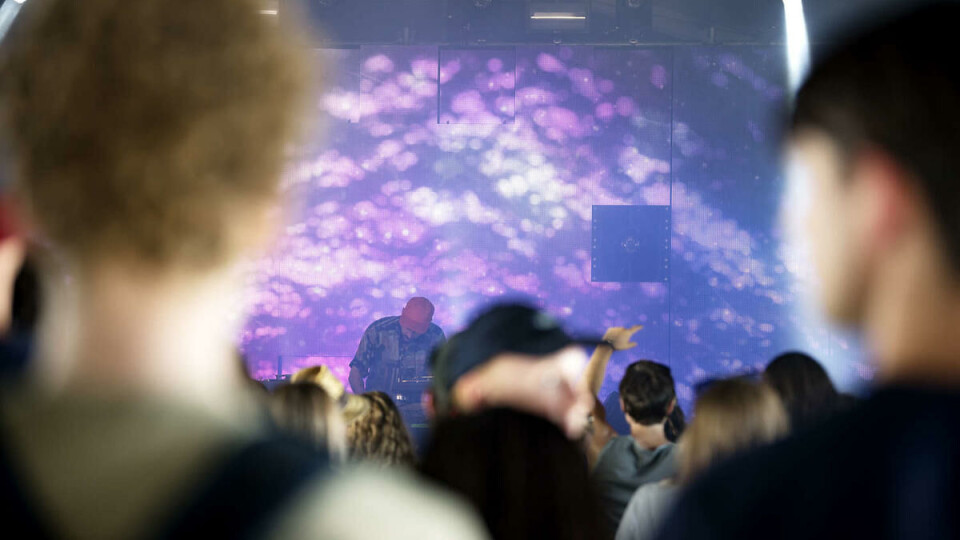
It was hard getting a word in at times, and I felt like I was being questioned more on my ability to do things or that I was being excluded from conversations simply because I was «just» a female singer, when I was so much more than that; it was my songs we were playing, I had written them.
I have since starting out as an artist, come out as non-binary. But when I first started out I was a young woman; I have been socialised and raised as a girl and a woman my whole life, so coming into the industry I got hit with some harsh realisations. I was surprised by some of the attitudes within the rehearsal-rooms. Our teachers were also predominantly male. I was also trying to manage an all-male band at the time, whom I considered to be my friends as well as my colleagues. I could hear comments like «okay, mom» under someone's breath, but one time right to my face, or hear laughter. It was hard getting a word in at times, and I felt like I was being questioned more on my ability to do things or that I was being excluded from conversations simply because I was «just» a female singer, when I was so much more than that; it was my songs we were playing, I had written them.
Some things have changed though; I´m older and more secure in myself and my abilities, but I am still a female-presenting non-binary person. That means I am perceived by most people as a woman when they look at me. So, I still face the same issues today as I did then, in addition to some new ones on top of that from being non-binary and genderfluid of course.
When talking about the perception of gender roles and possible reasons for it in music industry and in general, Emelie adds:
- I think it would be naive of me to say that gender didn’t have any importance or influence also in the music industry, because I see it every day. Since coming out as non-binary I have become more aware of how important gender actually is for people and how we have labelled things and assigned a gender to things that didn´t even have a gender in the first place such as clothes, colors, make-up, hairstyles, body-hair etc, when most people are not aware that the gender binary is largely a construct of western society through the narrative of Christianity, capitalism and colonisation. Many non-European societies actually didn’t have that strict male-female binary system.
This (music) is still a very highly male-dominated industry after all. And that says a lot.
So, to come back to the music industry; to say that gender doesn't play a part in the music industry is also naive because it still does. People are still being discriminated against, are not getting jobs, not taken seriously and are treated as objects only on the basis of their perceived gender. Those are facts that no one can question or take away from us.
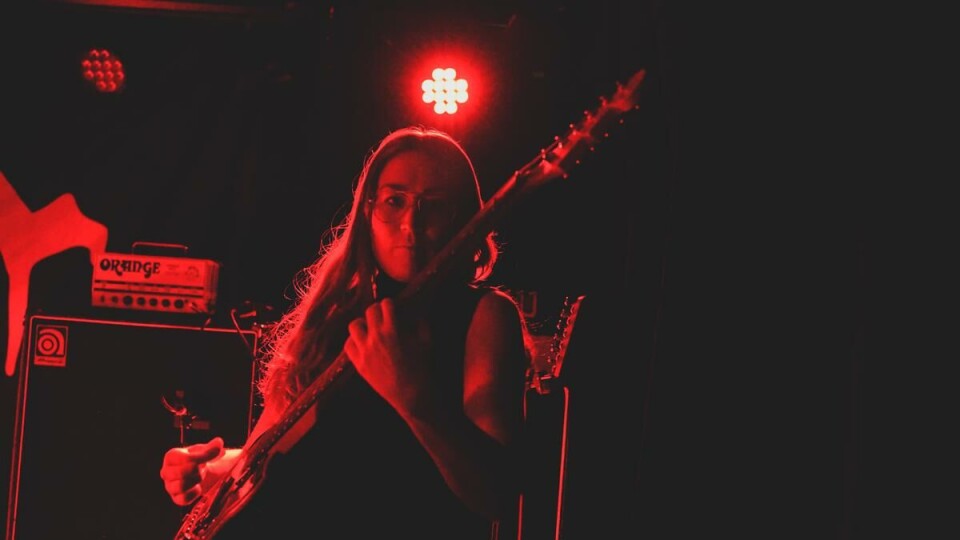
Rikke Karlsen plays guitar in the Norwegian Doom Metal band Dwaal, which has existed for 8 years now, starting in 2014. She moved to Oslo from Trondheim in 2013 where she’s been playing guitar in Indie Rock bands previously. Rikke has been playing guitar since she was 15. Talking about her music background she further adds:
- Growing up in the South of Norway, it was difficult finding a band to play with being young. But my family was interested a lot in music. This gave me a lot of inspiration. So, I was using my adult years to get to know my people and to find my identity. I’ve always been listening to different kinds of more heavy music. When I moved to Oslo, I really wanted to give that a chance. After putting out a post in a group on Facebook that I’ve been looking for other musicians, I got contacted by a couple of guys and so – we founded Dwaal. I’ve got to know more of the music industry and made friends through that band. I am very happy with Oslo and the music environment here. The underground environment in Oslo is so welcoming and including, music means something in all shapes and forms with a mix of people from 3 generations
music is something that should welcome everyone and everyone should give it a try because there is so much community, identity and belonging in music.
Asking Rikke about whether she thinks there are any differences in expectations towards the different gender representatives in the music industry in general, but also in the underground scene, she replies that she has a lot of thoughts and experiences in terms of this topic, however - some of them are very personal where she doesn’t know if it is related to her being a woman or personal feelings or people not being used to seeing female guitarists. She adds:
- I think it’s interesting, but it’s also difficult to answer as it can also bring some stigma to it. I really think that music is something that should welcome everyone and everyone should give it a try because there is so much community, identity and belonging in music. People find friends, they find themselves in music. They overcome trauma in music. So, when it comes to gender, I have some experiences I can talk about, but I also think that within the underground scene in Norway it goes into the right direction. Of course, there have been previous debates within the music scene where gender has been issued related to equality and diversity, especially in Rock and Metal etc. But it is really difficult to decide what is really happening, because it is also personal. Norway is a small country, but still, we have a lot of environments everywhere in the country. But in Oslo as the biggest city, we also have more international influence and people in Oslo experience more healthy diversity which makes people grow. I don’t feel that there are rules how you should be or act. Everyone is welcome.
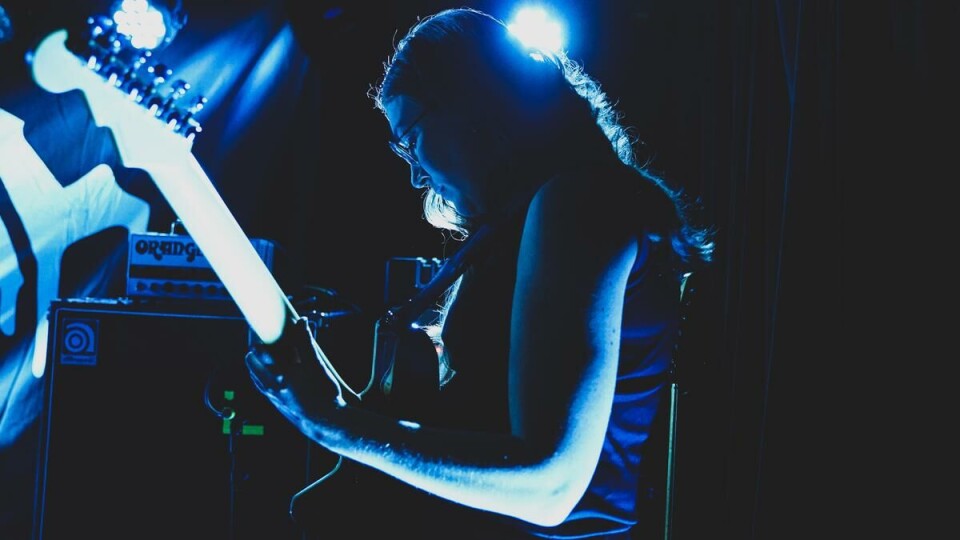
Females should do what they want to, and little by little people will get used to someone female doing it.
So, my experiences, when it comes to gender, are – I had some comments after or before playing a gig, like a guy who was really surprised seeing me carry the instruments and wondering if I was really going to play. He was really surprised, which can also be a positive kind of thing because he probably expected someone male. But at that moment I was probably making it into something negative myself. So, a small experience can be bigger in your own head. Over the years I had some experiences where I felt that people are unlucky with their own language. Language and body language can reveal you and your attitude. Females should do what they want to, and little by little people will get used to someone female doing it. And after a while gender does not have to mean something. Maybe it’s just someone playing guitar. That is what I wanted to be. I understand why gender means something looking back on fights in the society where being a woman truly was and still is problematic, not undermining the fact that there are so many stories and experiences out there on gender topics, where guys are not including girls. But my story is different with experiences of years of bullying where girls were worse than guys. It can sound easy, stupid and naive. Still it is a personal thing. Everything is, and playing guitar helped me going forward in finding my own self-value. Where male friends and musicians were just as welcoming as female friends and musicians.
Also Rikke addresses the fact that gender stills means something and suggests:
- Maybe it wouldn’t even mean anything when we just got to know each other. I met my band in that manner. I was just trying to find people wanting to share the same interest. And then I met them and saw – wow, we have a lot in common! If we have a lot of things in common, that really sets the stage. But I know that our history is different. I understand that the gender theme plays a role. This is my personal perspective. And when you want to make music because you love it, you get tired to connecting it to problems because then it is not giving you so much anymore. So that is why I am – not trying to ignore those issues – but trying to focus on the things that create some value.
When addressing where the inner monologues come from whether the experiences made are something systemic or very individual experience, Rikke suggests that it might come from role models that might be missing, specifically in the past. She continues:
- There have been female role models on stage, but they probably didn’t get as much attention. When I was a teenager, I was reading a guitar magazine to find tabs, get inspiration and so on. But there was always a male guitarist on the front. But suddenly, after ten years they had their first female guitarist on the front cover – Brody Dalle from The Distillers (a US Grunge/Punk band). It’s been a long time ago now – probably in 2007. I think we’ve come a long way since then. Now with all the social media platforms, a lot of female musicians have their own platform, and you can reach out to people in your own way. Before you’ve been really dependent on people you knew and people who would make it possible for you to get visible.
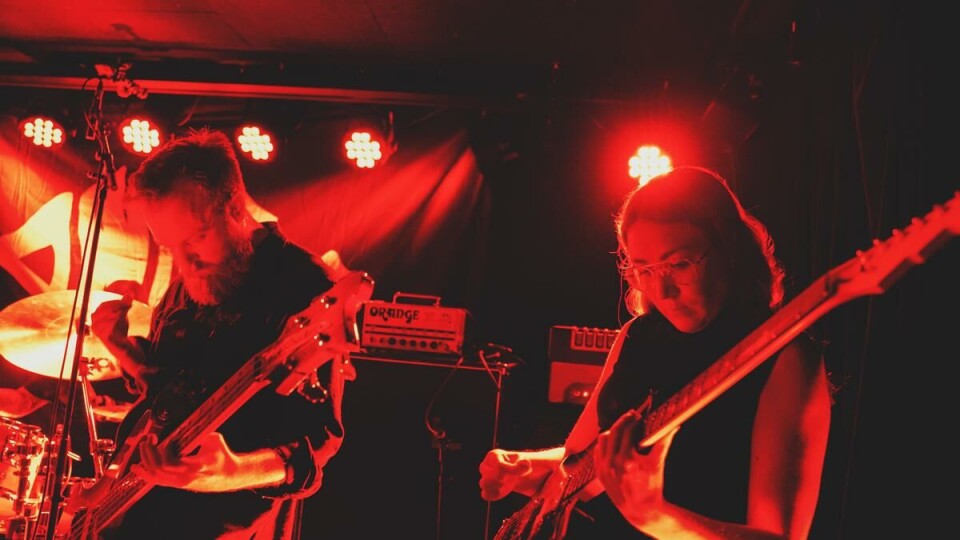
Rikke also talked about her expectations and experiences when she was about to play abroad with Dwaal some time ago. She said:
- I was just hoping to not get any weird comments to analyse and told myself – “Rikke, just don’t care about it. Just be yourself”. And then everything went great, and the people were great, and the event was great, and everything was just perfect. And when I was walking out of the door, that little finger just touched my back and I was thinking “oh no – now it’s here”. It’s not huge things, but he said – “Hey! I just had to say – great show tonight! But – aren’t you lonely? Isn’t it lonely to be the only female guitarist here tonight?” – putting it out as a negative thing. And I just said – “No. I don’t care. Why does my gender have to mean something?”. And he was very surprised. I am not a woman in need of any assistance or help. Of course, I want more females to take a guitar and play something. But just do it, because you want it, independently of your gender.































